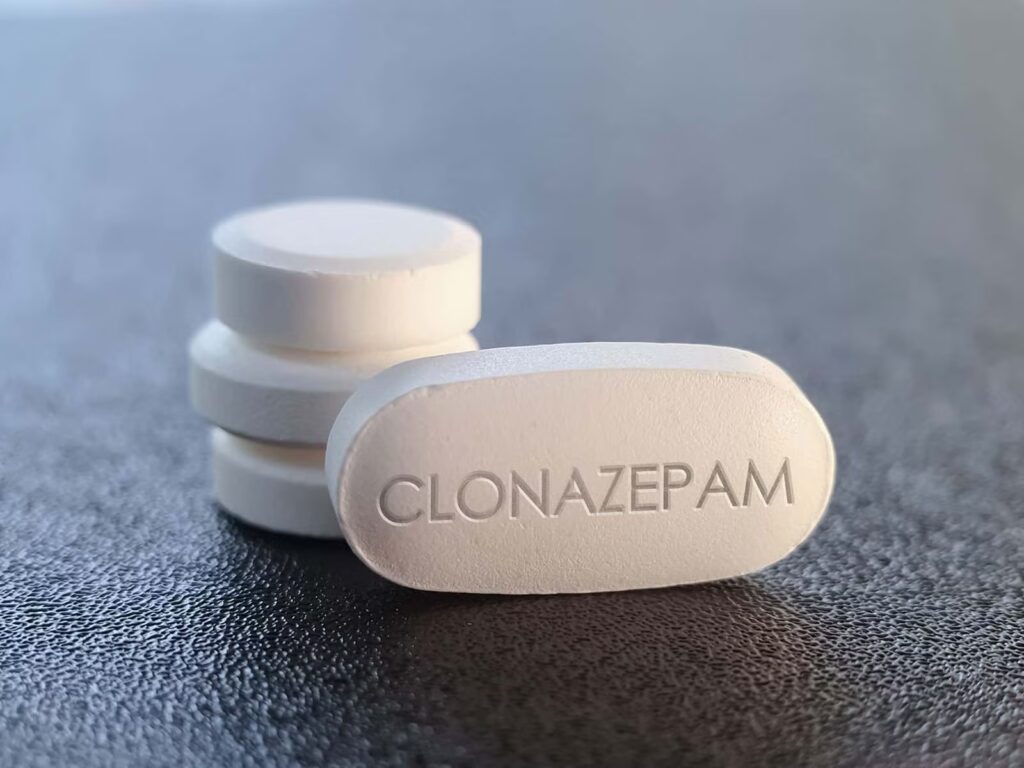Klonopin (Clonazepam) Addiction Treatment in New Hampshire
Because of Klonopin’s impact on the brain, the brain can become dependent
Home > Treatment > Benzodiazepines > Klonopin
Prescription drugs like benzodiazepines serve beneficial purposes to those that they are prescribed for. However, when benzos are not used as directed or are used by individuals who do not have a prescription, a serious and dangerous addiction can develop. Numerous drugs are included in the benzodiazepine drug class, including Klonopin.
What Is Klonopin?
Klonapin, which is the brand name for clonazepam, is a prescription medication that is used to treat several conditions. Specifically, a doctor may prescribe it to treat certain mental illnesses such as panic attacks, anxiety, epilepsy and other conditions with convulsions or seizures. Like other types of benzos, Klonopin can cause unpleasant and even serious side effects even when taken at the recommended dosage. Because of the potential for significant side effects, doctors carefully weigh the benefits of Klonopin for a specific patient against the potential drawbacks when prescribing the medication. In addition, some people will develop a tolerance for Klonopin, and this may result in an individual increasing their dosage. Tolerance can lead to addiction if it is not managed well by a doctor. A dosage increase should only be done under the direct order and care of a physician due to the possibility of serious side effects and addiction.
How Does Klonopin Work?
Your doctor will determine the appropriate dosage based on your condition, weight and age. This medication is used to calm the nerves and brain. It works by binding to GABA receptors in the central nervous system (CNS). It also calms stressful and unpleasant emotions, reduces blood pressure and slows the heart rate. This triggers a flood of dopamine, which creates a sense of euphoria and calmness. Because of this pleasant feeling, many people are drawn to take Klonopin without a doctor’s prescription or to increase their dosage without a doctor’s order. They may also develop a feeling that they need to take Klonopin in order to get through the day and cope with regular stressors.

Even when taken as prescribed, Klonopin can cause side effects. These include reduced libido, memory problems, confusion, slowed motor and cognitive skills, drowsiness, arm and leg numbness, constipation, fainting, clumsiness, impaired judgement and dizziness. Discuss bothersome side effects with your doctor. Your doctor may adjust your dosage or prescribe an alternative medication to treat your condition.
What Are Klonopin Withdrawal Symptoms?
Because of Klonopin’s impact on the brain, the brain can become dependent on it. This addiction can be both psychological and physical. Whether you take Klonopin strictly as prescribed by a doctor or on your own without a doctor’s order, your brain may not respond well if you suddenly stop taking it. Some of the potential symptoms of Klonopin withdrawal are muscle spasms, panic attacks, depression, anxiety, nausea, delirium and seizures. These withdrawal symptoms can be unpleasant and even dangerous in some cases. Your doctor will work with you to safely taper your dosage to minimize these symptoms. Do not suddenly stop taking Klonopin.
Why Do You Need Klonopin Addiction Treatment?
If you have been taking Klonopin without a doctor’s prescription or if you have been misusing prescribed medication, rest assured that help is available. The addiction withdrawal symptoms can be so significant that an individual is not able to break the addiction on their own. Rather than getting through the symptoms, an addict may start using the drug again to find relief.
Keep in mind that some Klonopin withdrawal effects can be dangerous or life-threatening. Klonopin addiction treatment is available with medically-observed and guided detoxification, and this treatment can help you to safely and effectively break your dependence on Klonopin.
Klonopin Detoxification
The first step in recovering from a Klonopin addiction is detoxification. This is the process where the drug is completely eliminated from the body. During this stage, withdrawal symptoms can be serious and life-threatening. Because of this, medical professionals during detox are required. Your healthcare team will monitor you throughout the detox process. Medications may be subscribed to ease some of the symptoms and make detox more comfortable for you.
Inpatient Klonopin Addiction Treatment
Detox will rid your body of the substance, but additional treatment is needed. Both inpatient and outpatient treatment are available for Klonopin abuse. Often, a Klonopin addiction develops because the individual has a co-occurring disorder, such as a panic disorder. During inpatient treatment, you may be treated for the co-occurring disorder. This can decrease the likelihood of t Klonopin again. Inpatient treatment is also recommended for individuals who are overcoming multiple addictions at the same time and who do not have a safe and supportive environment. During inpatient treatment, the individual may benefit from contingency management, cognitive behavioral therapy and motivational interviewing.
Outpatient Klonopin Addiction Treatment
Some people will benefit from outpatient treatment after detox or a combination of inpatient and outpatient treatment. Outpatient treatment is a day program, which means that individuals can return home at night and may even have time to work for a portion of the day. This is suitable for those who have a supportive and stable home environment, can regularly attend outpatient treatment sessions and who have a less severe addiction
Addiction Treatment Plans and Aftercare
You will learn numerous techniques and strategies in both inpatient and outpatient treatment programs. These techniques and strategies can help you to identify triggers for your drug addiction and avoid them. For example, if you feel anxiety in a certain situation, you can learn and practice coping strategies specific to that trigger. After treatment, however, you may still be exposed to some of the triggers that fed the addiction originally. Because of this, many people need aftercare.

Ongoing individual and group counseling are available for a benzo addiction. These can be in person and online. Some people benefit from 12-step programs. For those without a safe and supportive home environment, a sober living home can be beneficial. Individuals with an underlying health or mental health condition will need to continue seeking treatment from their doctor. Couple’s and family therapy, prescription medication and a rehab facility’s alumni program can also be helpful.
How Can You Help a Loved One with a Klonopin Addiction?
Those suffering from physical dependence will identify that they have a problem and will seek addiction recovery treatment on their own. In other cases, a concerned friend or family member may spot the signs of addiction. It can be difficult to spot the adverse effects of addiction. First, you must be aware that the individual is taking the medication, either with or without a prescription.
Then, you must be observant and look for signs of a problem. Initially, you may notice some of the classic side effects of Klonopin, including fatigue, nausea, dizziness and other symptoms described above. With long-term use and increased dosages, a loved one may develop a sensitivity to light and sound, increased numbness, a racing heart rate, rashes and hives, increased salivation, nausea and vomiting, difficulty breathing and seizure disorders.
Some Klonopin addicts will show behavioral signs. These include social withdrawal, insomnia and restlessness, decreased interest in activities they once enjoyed and increased agitation. Psychological symptoms of an addiction include suicidal thoughts, preoccupation with the drug, psychosis, cravings for the medication, confusion, hallucinations, changes in personality and short-term memory loss.
If you identify symptoms of a Klonopin addiction in a loved one, it is important to consult with a counselor at an addiction recovery treatment center for assistance and recommendations.
Learn More Today
Live Free Recovery Services offers effective Klonopin addiction treatment options in New Hampshire. By meeting with one our experienced counselors today, you can get personalized treatment recommendations based on your situation and needs. We are committed to helping you overcome your Clonazepam addiction, and we encourage you to connect with us today for the support you need.
Did this article answer your questions?
"*" indicates required fields
Take the First Step Towards a Brighter Tomorrow
At Live Free Recovery, we’re committed to walking alongside you on every step of your journey. Our compassionate team is here to provide the guidance and support you need to overcome addiction and reclaim your life. Don’t wait—reach out today to speak with someone who truly understands your struggles and can help you take that important first step toward healing and a fresh start.
Your path to recovery starts here.
